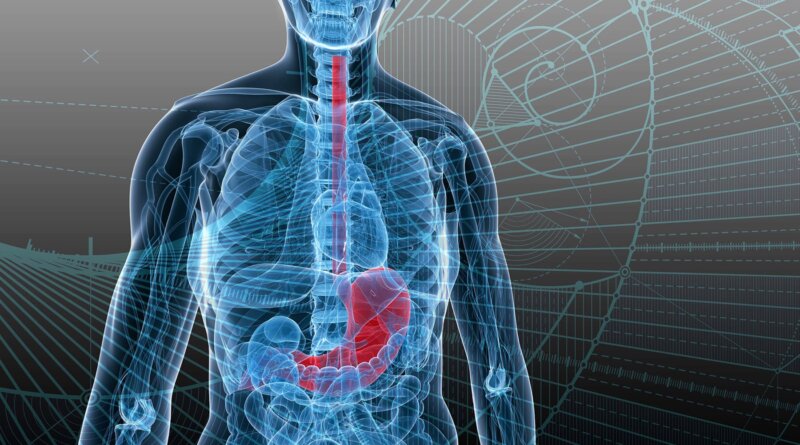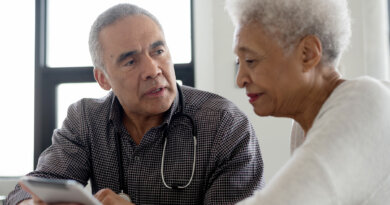This Thanksgiving, Enjoy the Turkey But Hold the GERD
Nov. 22, 2021 — John Farrell has mixed feelings about Thanksgiving.
“It’s great because I love eating, but by 6, 7 o’clock, I’m thinking, ‘This is not good,’” says the project manager from Virginia Beach, VA. “I’m feeling bloated, it’s feeding into the reflux. I can feel the acid coming up my throat, that burning sensation. There’s a lot of regret about everything I did that day.”
For around 5 years, Farrell, 46, has had GERD, which stands for gastroesophageal reflux disease. With this digestive disorder, your lower esophageal sphincter (LES, a muscular valve between your esophagus and your stomach) doesn’t work properly. It lets food and stomach acids reflux — flow back up — into your esophagus, which can cause discomfort and a burning sensation.
Most of us have occasional periods of reflux and the heartburn that can result, but with GERD, it happens two or more times a week. Roughly 60 million Americans have heartburn at least once a month, and as many as 15 million experience it daily. If GERD goes untreated, it can cause much worse symptoms and even lead to esophageal cancer.
Common GERD Triggers
While you may have heard that spicy, fatty, or rich foods should be avoided to prevent acid reflux, the reality is more complicated than that.
“Every individual has a different trigger for their GERD,” says Rena Yadlapati, MD, director of the Center for Esophageal Diseases at the University of California-San Diego. “I have some patients that can eat spicy, spicy foods, but they get reflux when they eat chocolate. I have others that just cannot drink coffee, but any food is just fine.”
Stefanie Robinson, a medical and dental biller from Pleasant Valley, NY, knows her triggers: acidic foods like tomatoes, and stress. She’s been struggling with GERD on and off for 20 years.
“I take [acid-reducing drug] omeprazole every night,” she says. “Lately I’ve been feeling stressed, so it doesn’t seem to be doing much. I take Tums in between. And rice pudding or yogurt will help settle my stomach — they seem to coat it.”
In addition to spicy foods and tomato products, Farrell says he has two other key triggers: overeating and lying down too soon.
“The most important things with GERD are the amount of food you eat, and the relationship with sleeping,” Yadlapati says. “It takes a few hours for the stomach to empty down into the small bowels. Once the stomach has emptied, you really don’t have a risk of having reflux from the stomach. But until then, whatever is in the stomach is likely to come back up.”
Thanksgiving and GERD: A Tricky Combination
Thanksgiving poses particular challenges for people with GERD, for one simple reason: “GERD is all about pressure,” Yadlapati says. “The more pressure we have in our stomach, the more likely reflux is to be triggered. And the thing that causes pressure is large amounts of food.”
Other things related to the holiday, like the stress of travel and family gatherings, may make you more prone to an attack, she says.
“Stress increases the excitability of nerves in your esophagus. If you’re having small amounts of reflux, on any other day, that might not cause symptoms. But under stressful circumstances, it might cause severe chest pain and burning.”
Another common part of holiday celebrations can also cause trouble.
“Alcohol is known to relax the lower esophageal sphincter, which facilitates reflux,” says Allon Kahn, MD, an assistant professor of medicine at the Mayo Clinic in Scottsdale, AZ. “So it’s likely, especially in the presence of a big meal, to make symptoms worse.”
While some people who have GERD take medication to help them produce less stomach acid, others manage with lifestyle changes like identifying and avoiding trigger foods or waiting at least 3 hours after eating to lie down. But on Thanksgiving, those careful practices often go out the window. Letting loose can lead to a nasty bout of GERD.
“Patients who are controlled with medicine might be less likely to have worsening of their symptoms, because the acid has been reduced to the point where it may not bother them as much,” says Kahn.
Enjoy the Holiday — and What Comes After
Whether you know you have GERD or you just get heartburn occasionally, a few tips can help you pull off a pain-free Thanksgiving:
- Practice portion control. As hard as it is to resist a second helping of Aunt Martha’s stuffing, it’s really important to avoid overeating. “By the time you feel full, you’ve already eaten way too much,” says Farrell. “Knowing that, I’ll try to stick to one plate.”
- Be cautious with alcohol. In addition to its influence on your LES, drinking can lower your inhibitions. It makes you more likely to have that second helping of stuffing after all.
- Choose foods carefully. Fried or very fatty foods are considered refluxogenic, says Yadlapati — they might induce more reflux. And of course, if you’re aware of your own triggers, do your best to avoid them. “I’m going to be very selective in what I eat at Thanksgiving. I’ll stay away from salad, since the dressing will have vinegar. I’ll just stick to mashed potatoes and turkey,” says Robinson. “And I might bring my own dessert: rice pudding.”
- Consider pre-medicating. If you’ve been managing your GERD with lifestyle modifications, you might want to take an over-the-counter medication, like Prilosec, 30 to 60 minutes before you sit down to eat, Kahn says. That can help reduce the amount of acid your stomach produces as you digest.
Even with the best of intentions, you may still find yourself in pain Thanksgiving night. Here’s what you can do:
- Be ready with antacids afterward. If you’re not comfortable taking medication in advance, Kahn recommends bringing along an antacid medication like Tums or Mylanta. “If you act quickly, it can shut down reflux,” he says.
- Avoid the urge to lie down. Because Thanksgiving meals are so much larger than regular dinners, Yadlapati and Kahn both recommend waiting longer than usual before lying down. Aim for 4 hours instead of 3. Or if you must lie down sooner than that, use a wedge pillow to elevate your upper body.
- Try belly breathing. “It can actually reduce reflux from coming up, and it can strengthen your diaphragm,” says Yadlapati. “It also helps to relax the nerves in your esophagus.”
- Get moving. A little gentle exercise may ease your symptoms. “Going out for a family walk after dinner really helps,” says Farrell.
- Manage your expectations. People who have GERD or regular heartburn often know where their limits lie, and when they cross them. “If you’re going to have a late night and drink, it’s OK,” says Yadlapati. “Just know you might wake up in the middle of the night.”
- Don’t panic — but pay attention. “If you’re truly experiencing chest pain or a pressure-like sensation, it’s foolish to assume it’s heartburn,” says Kahn. “Heart attack and heartburn can present similarly, and eating a big meal is a stress on the heart. If you’ve never had this symptom before and it’s not mild, seek emergency care.”





av kan virke skremmende, men det finnes alternativer. Cialis er et hjelpe til a behandle erektil dysfunksjon og er tilgjengelig fra lege.Cialis
deep web sites darkmarket url dark web markets